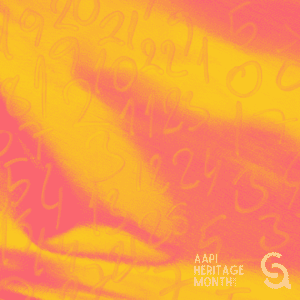 Sometimes data is just numbers. But I like to tell my kids that statistics are numbers that tell a story. In honor of Asian American Pacific Islander Heritage Month, today’s list includes places to find data about the Asian American Pacific Islander community.
Sometimes data is just numbers. But I like to tell my kids that statistics are numbers that tell a story. In honor of Asian American Pacific Islander Heritage Month, today’s list includes places to find data about the Asian American Pacific Islander community.
A workshop I attended called “Justice Through Data Equity” at a White House forum recently shows the importance of finding the numbers that tell the story of the community. While there are a few academics that I go to for these types of questions, this list highlights websites that provide helpful and usable information. I hope you will be surprised by the information—I certainly was!
The Asian American Pacific Islander community felt an increase in violence against Asian Americans in the early stages of the Covid-19 pandemic. But the experiences remained anecdotes and stories, shared among families and friends as warnings. It wasn’t until co-founders Russell Jeung, Cynthia Choi, and Manjusha Kulkarni started to track the information in March 2020 through their project Stop AAPI Hate that we began to see how widespread and common this was. For their work, Time magazine named the three founders in their list of “100 Most Influential People of the World.” The reports continue to provide an analysis of current-day trends. In some ways, Stop AAPI Hate demonstrated how important data is for a new generation.
Russell Jeung has served as a writer and contributor for CSA, and as a partner at various advocacy summits. He’s a friend of CSA, and we’re big fans of his.
For quick stats to understand some of the basics about Asian American/Pacific Islanders in the US, AAPI Data does a great job helping us visualize information so that we can actually see the diversity of the AAPI community. And the info busts the “model minority myth” by highlighting fact sheets of different communities. This eminently usable website allows you to search and discover facts such as the Pakistani community’s 200% growth rate over 10 years. Analysis of different policy areas reveals the experiences and perspectives on issues like gender-based violence, the environment, and education. If I had to sum up the surprises on this website, it’s that Texas has a huge AAPI community. I guess everything in Texas is big!
Southeast Asian Resource Action Center (SEARAC)
This data and report site helps to bring visibility to the stories of Americans from Laos, Cambodia, and Vietnam. I found the information here fascinating because this community has tremendous insights on issues of immigration, refugee support, and asylum seekers. In addition to highlighting powerful stories, this resource educated me on the particular differences in these communities. As a Japanese American from the East Asian community (which includes Japanese, Chinese, Korean, Taiwanese), I found it helpful to learn some of the stories from the more southern AAPI communities.
Wherever I go, I try to advocate for people who are not being captured in the data sets. Generally, Asian Americans and Pacific Islanders are not included in broad national surveys. But the lack of long-term stats usually means an erasure of the stories and experiences from the communities that aren’t counted. Pew has been one of the few larger research and polling groups that have invested in understanding the AAPI community. On May 8th, a large-scale report, led by Neil Ruiz, the son of Filipino immigrants, was released highlighting attitudes and perspectives from the AAPI community. Ruiz heads up the New Research Initiatives at Pew and will continue to release insights throughout May 2023.
 Nikki Toyama-Szeto is the Executive Director of CSA.
Nikki Toyama-Szeto is the Executive Director of CSA.


